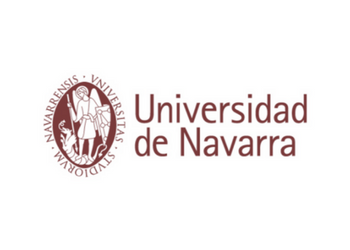

Universidad de Navarra - UNAV
speciality: Communication
What is a Communications degree?
Communications is a universal degree, which explores the traditional forms of communication such as verbal, physical, visual and written communication but also extends beyond that to cover mass communication and social media. There are different types of communications degrees depending on the degree level.
Overall, Communications focuses on teaching effective communication through social media, web, print, mass media and verbal communication. However, there are two types of Communications degrees that exist. For instance, a Bachelor of Arts in Communications in the US is focused on preparing students for careers that are connected to writing, marketing, promotions, journalism and public relations. In contrast, Bachelor of Science in Communications is dedicated to the technology used in the science behind modern communication and prepares students for careers in production or sound engineering.
A Communications degree teaches students about how media and communication influences cultures, societies and people’s identities. It involves a significant amount of critical writing and research and covers different disciplines such as journalism, public relations, entertainment production, marketing, event planning and so many more disciplines, which are somehow connected to exchanging information and conveying messages. There are also different specialization options associated with this degree, including political communication, mass media, journalism, health communication, etc.
It is worth noting that a Communications degree has many intersection points with psychology, sociology, linguistics and in some cases politics.
Benefits of a Communications degree
The main benefit of a Communications degree is its universal nature. It applies to almost any subject or professional setting. For example, some of the top careers in the field of Communications include announcers, art directors, editors, broadcast and sound engineering technicians, reporters, correspondents, broadcast analysts, technical writers, writers and authors, interpreters, translators, etc. Therefore, it keeps students’ career options open and doesn’t require them to have a predetermined career path that they want to follow.
Communications degrees prepare students to make an impact from the start of their careers unlike other degrees, which require further training. This is possible thanks to the multitude of professionally accredited degrees in Communications, which develop students’ abilities based on the established standards in the field. Moreover, there are many Communications courses, which offer work placement opportunities that enable students to gain the required professional skills before they have even started their career.
Another benefit associated with Communications degrees is the fact that they develop students’ written and verbal communication skills significantly.
A major advantage of Communications over other degrees is that in most cases there are no prerequisites required to study Communications.
Communications degree structure
The duration of a Communications degree varies depending on the country and degree level. For example, Higher Education Institutions in the UK offer 3-year Bachelor’s courses. In some cases, the course may extend to four years if students are given the opportunity to spend a year abroad or in industry between the second and third year through a sandwich course. Bachelor’s degrees in Communications in the US usually take around four years to complete.
Over the duration of a Bachelor’s Communications degree, students are expected to learn and be able to apply the established communications theories by developing the technical skills required to work in a professional setting. In the first year of their studies, students learn predominantly how media and communication influences cultures, societies and people’s identities. Optional modules may introduce them to professional communication, journalism, documentary, film-making, marketing, etc. In addition to the introductory topics, this degree allows students to learn about more complex areas of communications such as interpersonal relations, brand management and linguistics at a later stage. For instance, the second and third years enable students to get a deeper understanding of theoretical concepts related to media and culture and develop practical skills in research and communications. Additionally, students may have the opportunity to take optional modules and pursue their interests in different areas related to Communications such as gender, race, youth, culture, digital media, political communication, public relations, etc.
The most common duration of a Master’s degree in Communications is between 1 and 2 years depending on the mode of study (full-time or part-time) and country.
PhD and MPhil degrees in Communications require students to dedicate anywhere between 3 and 6 years to their studies depending on the mode and country of study.
4 Student Reviews
Filter reviews-
Journalism13 Sep, 2022
 StudentOld school is not cool
StudentOld school is not coolThe school of communication is set on teaching closer to the mainstream media leaving little space for criticism and progress in communication. Although being able to communicate our ideas properly is important, and unav does a good job at it, the space to think and reflect about communication is little and shallow.
View moreProgramme: JournalismDegree: Bachelor'sGraduation: 2024Delivery Type: On CampusCampus: Pamplona -
Journalism11 Mar, 2022
 StudentEducation in the human aspect, facilities, teachers, international students.
StudentEducation in the human aspect, facilities, teachers, international students.The best thing about the university is the atmosphere. Both teachers and students are international and that makes you grow as a person. The facilities are incredible and the degrees are very well designed.
View moreProgramme: JournalismDegree: PhDGraduation: 2023Delivery Type: On CampusCampus: Pamplona -
Audiovisual Communication01 Jun, 2020
 StudentThe personalized student-teacher treatment
StudentThe personalized student-teacher treatmentThe university is very well located and stands out especially for the personalized treatment of the teachers towards the students. Also, classes usually have few students and this allows for more learning. On the other hand, the university offers external internships in companies that allow students to put their skills into practice. Regarding the content of the classes, the Audiovisual Communication degree could improve substantially if the subjects were distributed in a more balanced way, such as having more subjects oriented towards sound and photography instead of spending so much time writing or producing. In general, I would highlight the quality of the teaching team and the comfort of being located in a city like Pamplona.
View moreProgramme: Audiovisual CommunicationDegree: Bachelor'sGraduation: 2020Campus: Pamplona -
Audiovisual Communication24 May, 2020
 StudentEnriching experience
StudentEnriching experienceI recently graduated. Of the four years of my career, one of the things I have enjoyed most has been the opportunity to meet people from different parts of the world and getting out of my comfort zone. The “college experience” at UNAV takes place both on and off campus.
View more
The wide variety of subjects has allowed me to acquire diverse knowledge that will serve me in the near future. The teachers are professionals in their different fields. Besides knowing the theory, most of them have professional experience in the areas covered by the subjects they teach.
On the other side, even if the subjects were challenging, I expected them to be less theoretical. I believe theory is as important, but there has to be a balance between both of them.
In general, the set of experiences that have emerged from studying at this university are very positive.Programme: Audiovisual CommunicationDegree: Bachelor'sGraduation: 2020Campus: Pamplona

